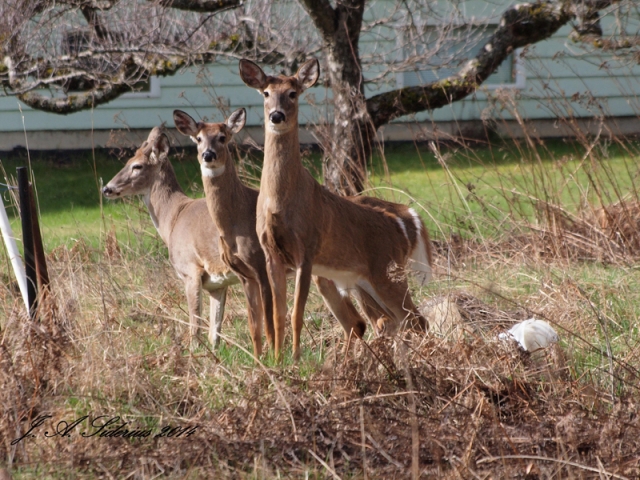Spring is here — and so are the animals
Spring is back and so is Nelson and Area WildSafeBC.
WildSafeBC strives to reduce human-wildlife contacts by “keeping wildlife wild – and communities safe”.
Nelson and Area WildSafeBC will again be going door to door, tagging garbage in areas experiencing conflict with wildlife, delivering school programs, and setting up displays at local events.
It may be early in the season, but there have already been many wildlife concerns reported:
- Black bears have been causing property damage and finding garbage both in the City of Nelson and in RDCK Areas E and F.
- There are grizzly bears feeding on the vegetation and on ground squirrels at Apex and at the Cottonwood Park area. The trails in the area are closed due to bear activity. Please respect the trail closure.
- Coyotes are now raising young and have been reported stalking pets. Keep an eye on your pets so that they do not become a coyote meal.
- No cougars have been reported near homes since winter, but it is wise to keep deer from becoming comfortable near your home. Cougars may stalk those deer living in your yard.
You can report any safety or property conflicts with widlife to the Conservation Officer Service on the RAPP line at: 1-877-952-7277.
Some tips to remember:
- Please keep garbage in a location inaccessible to bears. If you do not have secure garbage storage, you can freeze the smelly food items until collection or you can take the garbage directly to the landfill. Residents can also use a bear-resistant garbage can.
- Bird seed is attractive not only to bears but to deer, coyotes, and raccoons as well. Birds do not need additional feed in the summer. Bring bird feeders in until November, or they may become “bear feeders”.
- Compost, chickens, and pet food are also items that when managed improperly, can become wildlife attractants.
- Keep pets in at night and watch them closely when outdoors to prevent coyotes and cougars from making a meal of them.
- Do not let deer feel comfortable near your home – cougars could follow the deer to your home.
You can learn more about identifying and managing wildlife attractants by: contacting Joanne Siderius at [email protected] , visiting us on Facebook (as WildSafeBC Nelson), and by visiting www.wildsafebc.com.

























